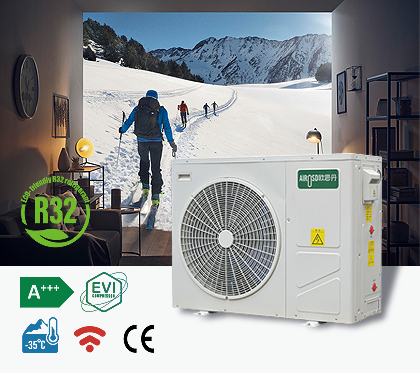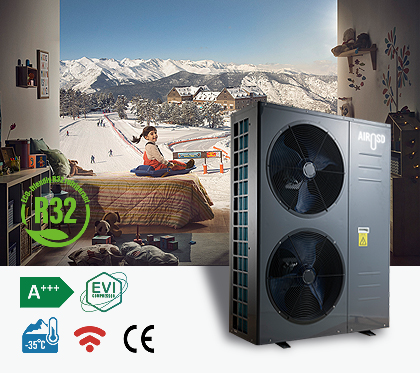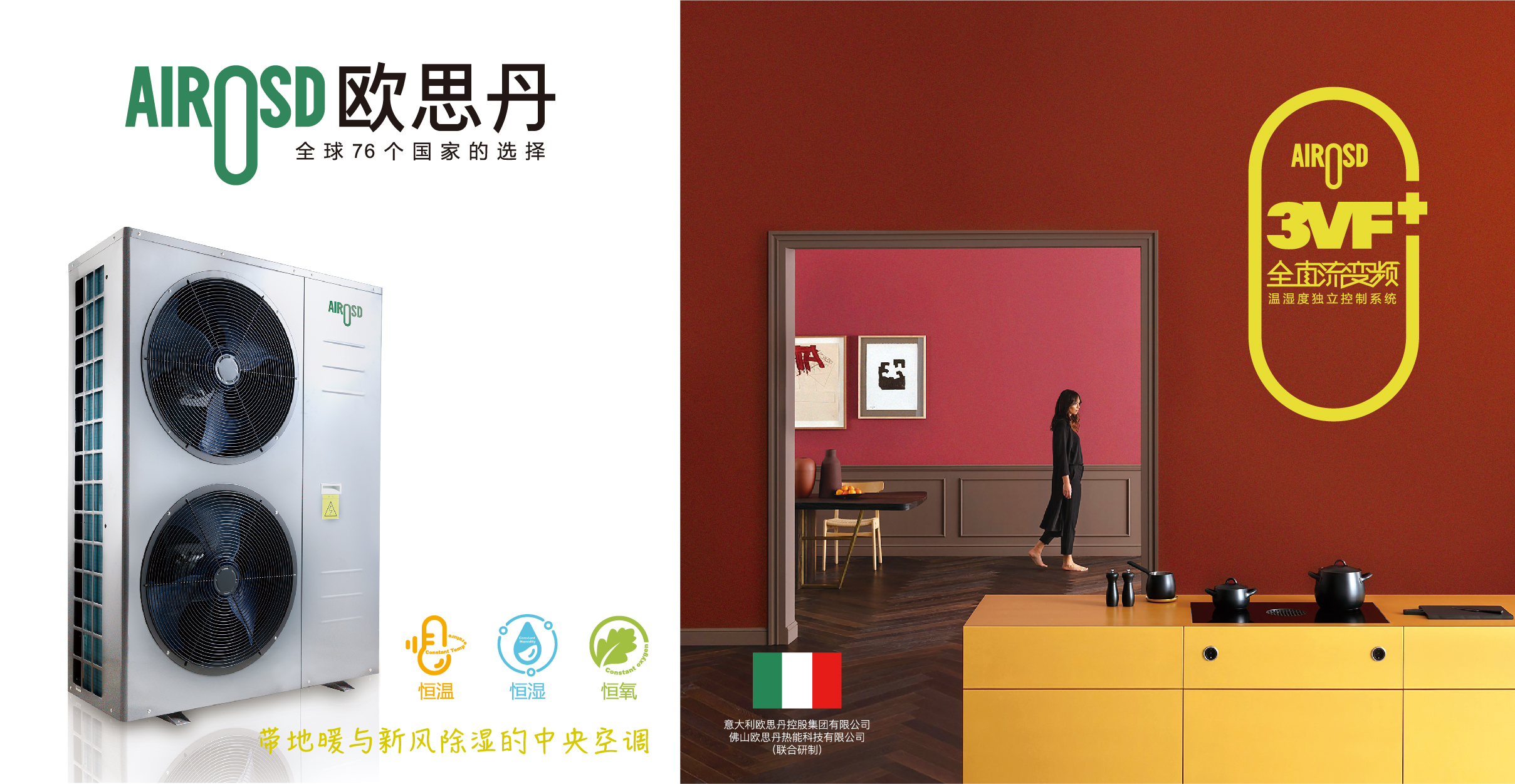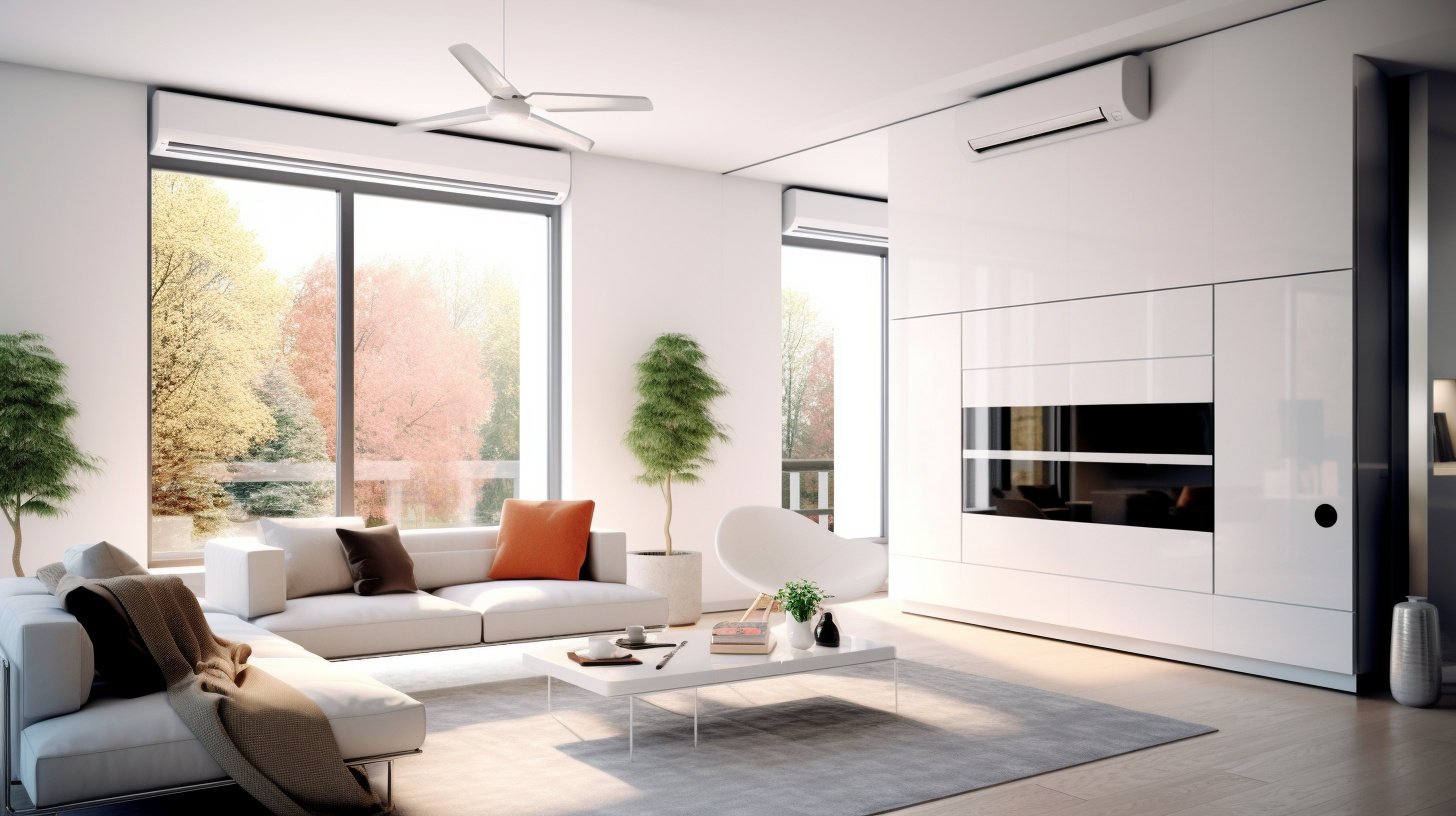Air-Source Heat Pumps: Efficient Heating, Cooling, Water Heating, and Energy Efficiency
Heat pump systems provide an innovative approach to home climate control by moving heat rather than generating it. An air-source heat pump is a popular type that uses outdoor air to provide both heating and cooling. Such a system can warm a home in winter and cool it in summer with high energy efficiency. Many modern heat pumps also supply water heating, meaning one system can handle space heating, cooling, and hot water. Selecting an air-source heat pump ensures efficient heating and cooling and effective water heating, giving homeowners reliable hot water and climate control with minimal energy waste.

Advantages of Air-Source Heat Pump Systems
Air-source heat pump systems handle multiple tasks in one unit, providing both heating and cooling and supplying water heating with improved energy efficiency. One air-source heat pump can warm the home in winter, cool it in summer, and heat water for daily use, all while using far less electricity than conventional equipment. Homeowners enjoy year-round comfort from a single system. Because heat pumps move heat instead of generating it, they achieve much higher energy efficiency than separate furnace, air conditioner, and water heater setups.
How Air-Source Heat Pumps Work
In an air-source heat pump system, a refrigeration cycle moves heat between outdoors and indoors, letting one device handle both heating and cooling. The outdoor unit extracts heat from ambient air and the indoor unit releases it into the home; in cooling mode, the process simply reverses. This allows one system to provide heating in winter and cooling in summer. Modern heat pumps often achieve a COP above 3, meaning they deliver much more heat energy than the electricity they consume. These high COP values translate to exceptional energy efficiency. Overall, an air-source heat pump provides heating and cooling more efficiently than traditional furnaces or air conditioners, lowering utility costs.
Heat Pump Water Heating
Heat pumps can also efficiently water heating . An air-source heat pump water heating pulls heat from air and transfers it into a water tank, acting like a refrigerator in reverse. This can make it two to three times more energy efficient than a conventional electric heater, cutting water heating electricity use roughly in half. Many homeowners combine space heating and water heating with one heat pump, achieving even greater efficiency. For example, using a single water heating to serve both heating and hot water maximizes heat use and overall energy efficiency.

Maximizing Energy Efficiency in Heating and Cooling
Proper installation and maintenance are essential. Placing the outdoor unit with unobstructed airflow and correctly sizing the system prevent waste. Insulating the home and using an efficient thermostat reduce the heating and cooling load, helping the heat pump run more efficiently. Routine maintenance like cleaning coils and checking refrigerant levels keeps the system at peak energy efficiency. With these measures, an air-source heat pump can consistently provide reliable, efficient heating and cooling.
Installation and Sizing Considerations
Selecting and installing the right air-source heat pump is crucial. Ensure the system is sized correctly for the home's heating and cooling needs. In cold climates, choose a model rated for low-temperature operation so it can still extract heat efficiently. Keep the outdoor unit clear of debris and regularly maintained to preserve its energy efficiency. A properly installed air-source heat pump will provide reliable heating and cooling and can be set up to assist with water heating for maximal efficiency.
Conclusion
Air-source heat pumps represent a versatile and efficient solution for home climate control. They combine efficient heating and cooling with water heating in a single system, delivering superior energy efficiency and reducing utility costs. Repeating terms like "water heating" and "air-source heat pump" underscores their importance in modern HVAC. By choosing an air-source heat pump system, homeowners can cut energy use for heating, cooling, and water heating simultaneously. In summary, modern heat pump technology offers a sustainable path to year-round comfort and efficiency.

Key Takeaways
-
Year-round efficiency: An air-source heat pump provides combined heating and cooling and water heating in one system, greatly improving overall energy efficiency.
-
Hot water production: Heat pump water heating move heat from the air into the tank, delivering water heating with much higher energy efficiency than electric heaters.
-
System consolidation: A single air-source heat pump can replace separate furnace, air conditioner, and water heater units, simplifying equipment and boosting energy savings.
-
High efficiency: By capturing heat from the air, a heat pump often delivers two to three times as much heat energy as the electricity it consumes, reducing energy use in heating and cooling.
-
Integrated design: A single air-source heat pump can provide space heating, cooling, and water heating in one system. Integrating these functions maximizes overall energy efficiency.
-
Climate adaptability: In many regions, installing an air-source heat pump can significantly reduce heating and cooling bills, because the heat pump adjusts output to meet varying weather conditions.
-
Proven technology: Homes with heat pumps commonly see lower energy bills, and studies highlight heat pump efficiency for heating, cooling, and water heating tasks.
-
All-in-one solution: The air-source heat pump exemplifies integrated heating, cooling, and water heating in one efficient device.
-
Industry leader: In efficiency tests, a heat pump often outperforms other systems in meeting heating and cooling requirements while using less energy.
-
High seasonal efficiency: Air-source heat pumps often achieve high SEER and HSPF ratings, ensuring energy efficiency in real-world conditions.
-
COP benefits: Each heat pump boasts a high coefficient of performance (COP), which directly contributes to energy efficiency by providing multiple units of heat per unit of electricity.
-
Smart climate control: Modern air-source heat pumps incorporate smart controls and variable-speed compressors to maintain optimal energy efficiency across all heating and cooling conditions.



